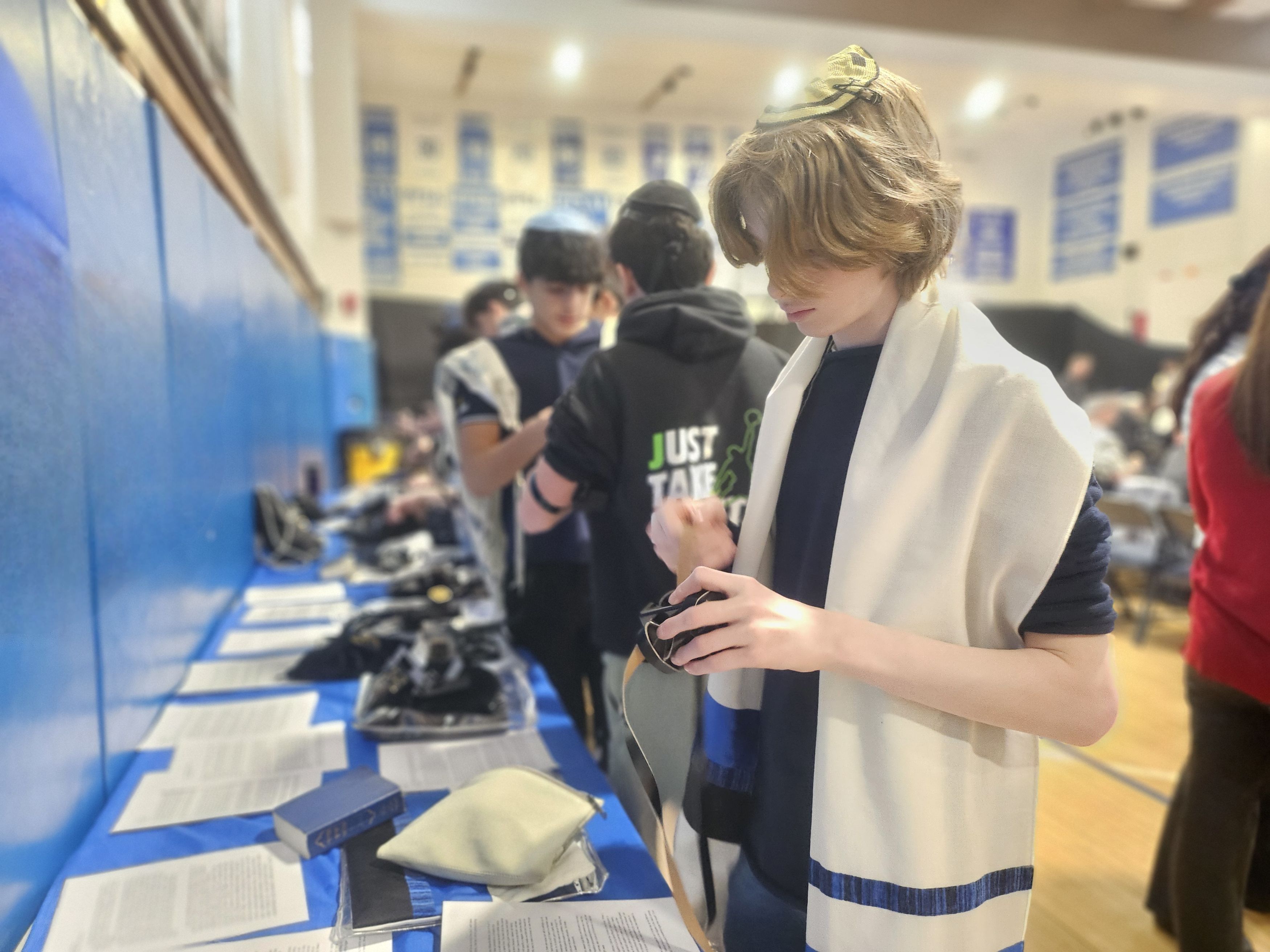
Prayer and spiritual development are core values of our school.
Daily prayer services at developmentally appropriate levels enable our students to encounter God within community. These prayer services allow for the acquisition of basic skills in siddur and traditional chant, but also provide opportunities for more individualized expressions of spirituality.
At Schechter, the weekly and annual Jewish calendar serves as a canvas for learning and communal engagement.
The halls of the Lower School are filled every week with students and parents singing and dancing for Kabbalat Shabbat alongside cantors and rabbis from the community. Prior to Pesach, the Lower School holds a school-wide Seder that integrates Ashkenazi, Sephardi and Mizrahi traditions, while students in the Middle School share our Seder traditions with the neighboring Catholic students from the St. Aidan’s Parish. Outside of school, our families celebrate together with Shabbat and holiday meals, and help build the communal ties that bind us to one another year-round.
Meaning Making, Learning, and Skill Building Tefilah Activities in the Upper School (Grades 6-12)
12th grade מדריכי רוח join grades 6-8 every few days to be spirit-raisers and big “brothers” and “sisters.”
Upper School students generally pray a traditional service, learning synagogue skills of both congregants and leaders in the process. There’s nothing sweeter than the voices of young people chanting parts of the Shema and V’ahavta to Ashkenazic Torah trope and other parts of it to Sephardic ta’amei hamikra!
6th grade students learn to chant Torah according to their family’s traditions, both Ashkenazic and Sephardic. Students in grades 7 - 12 are encouraged and supported to continue developing their Torah reading skills. Support is differentiated for the needs of the individual student.
High School students have opportunities to attend opt-in workshops on topics in Tefilah. The most recent workshop was analyzing a poem published by one of our alumni and engaging in the question, “Is it prayer?” It was led by a student leader who collaborated with a teacher.
High School students periodically have “pray or play” days in Tefilah, where they choose their activity for the morning. The traditional service on these days is particularly beautiful! The games are all Tefilah-related. They might play a Kahoot about a particular prayer or they might play Prayer Pictionary or Tefilah Taboo. The games are fun and foster a culture of openness to analysis of prayers and asking questions about them.
Middle School students are celebrated individually as they reach the age of bar and bat mitzvah. Those students who have the mitzvah of tallit and tefillin are supported as they learn the how to of these meaningful rituals.
Middle School students are engaged in meaningful learning activities about various synagogue and home prayer traditions.
Middle School students often celebrate fun Fridays where they learn to sing Shabbat songs or shabbat musaf with upbeat tunes.
Middle School students learn to be gabbaim, Torah service coordinators. They fill all of the leadership roles and learn the different parts of the Torah service - opening the ark, lifting and rolling the Torah, how to have an aliyah, say the prayer for Healing/Mi she berach, etc.
Middle school students routinely do meaning making activities through discussions, dramatic play or through art in which they explore the deeper meaning behind the prayers.
.png)